Eggplant is currently in season, so whether you’re harvesting your own crop from a backyard garden or just shopping at the farmers market, there’s no better time to get your eggplant fix — and we recommend going way beyond your staple eggplant parm. Grill it and top it with a carrot pesto. Turn it into a dip or make a quick casserole. However you enjoy your fresh, seasonal eggplant, you’ll also enjoy the health benefits, like extra fiber, vitamins and antioxidants.
All of that said, there’s one thing that can really ruin your eggplant experience — a bitter veggie. Eggplants (or aubergines to our friends across the pond) are just one of those vegetables that, if you pick the wrong one, you’re in for a bad (bitter) time. Luckily, there are a few ways you can pick a less-bitter eggplant from the garden or market, or make a currently bitter eggplant less so.
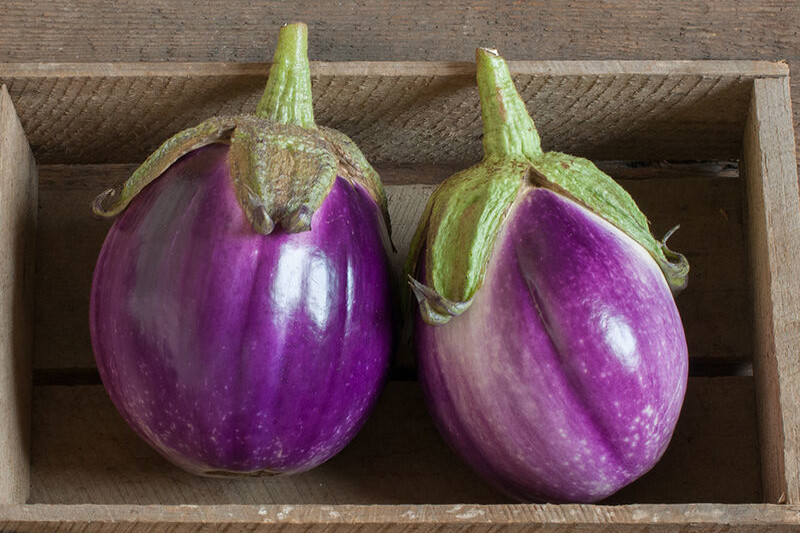
1. Pick a non-bitter eggplant variety
If you have your pick of eggplant varieties, go for one of the varieties known to be less bitter than most. Heirloom Rosa Bianca eggplants, for example, are known to never be bitter. Likewise, the Asian Delite eggplant, which is on the skinnier, longer side, is also not bitter, as is the Fairy Tale variety. Want an eye-catching eggplant that ditches the bitter flavor? Try the Green Envy eggplant, which is one of the sweetest eggplants you can grow or buy.
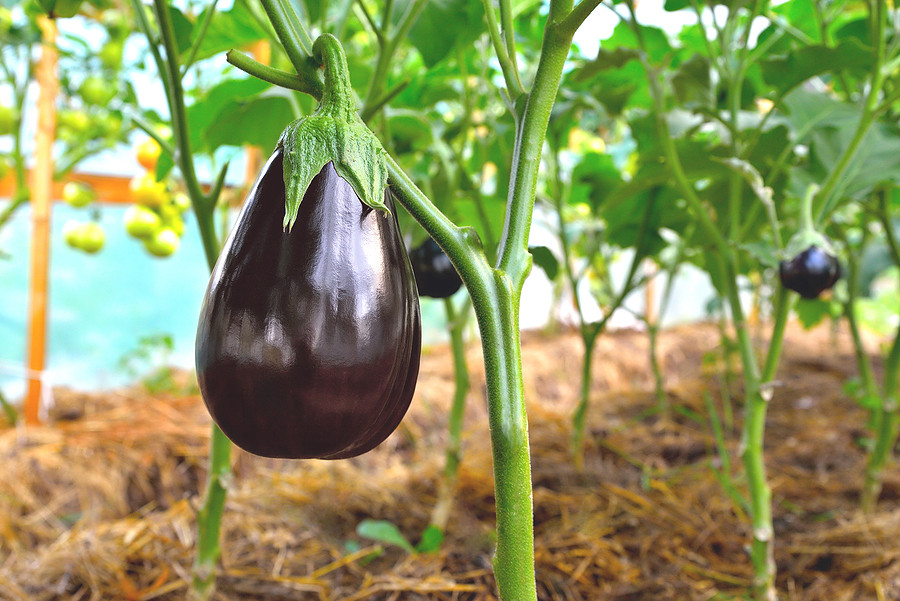
2. Harvest your home-grown eggplant at the right time
If you’re already growing eggplant at home and you didn’t pick one of the varieties known for their lack of bitter flavors, all is not lost. Just pick your eggplant at the right time. Don’t let your eggplant sit too long as the riper the eggplant, the more bitter. Most eggplants are ripe in July or August. Overall, err on the picking-too-soon side; if you wait until the eggplant is perfectly ripe before picking, you’re more likely to end up with a bitter eggplant.
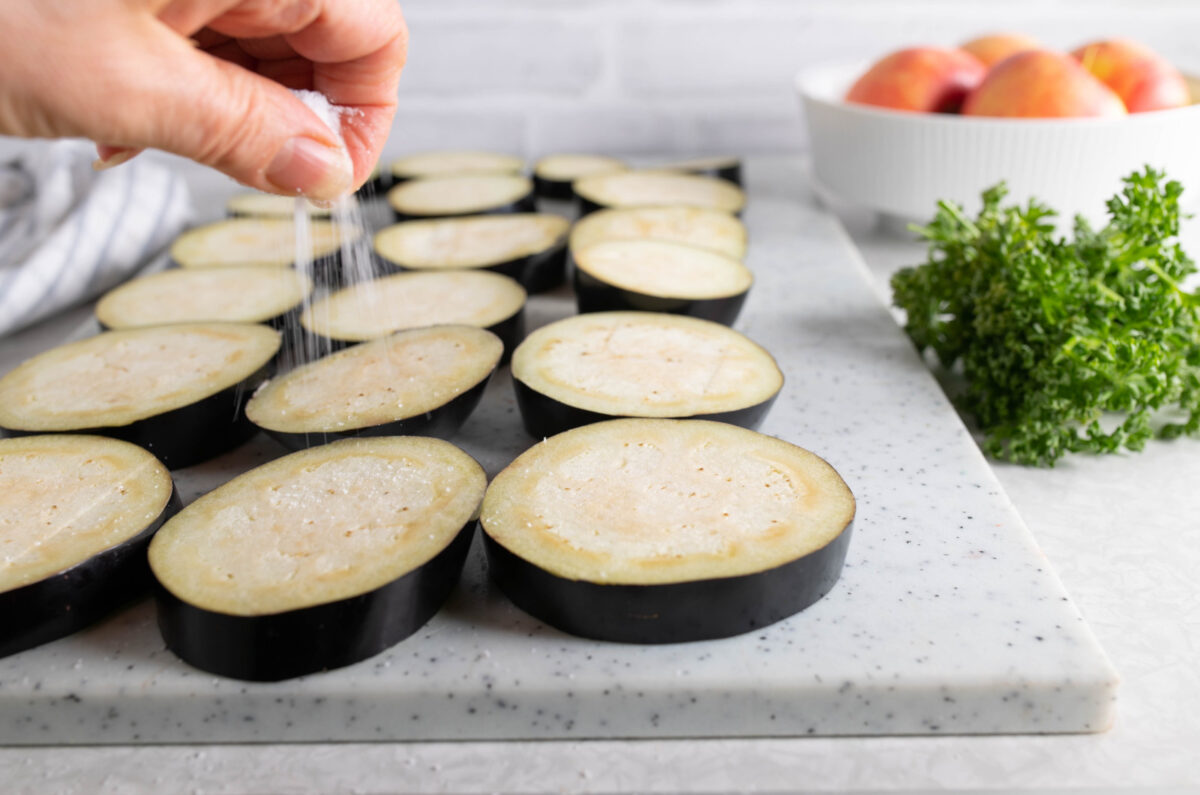
3. Let the eggplant sit in salt
Let’s say you already have your eggplant on the chopping block and you need to cure its bitterness if you plan on serving dinner tonight. If you have an hour or two, let the eggplant — sliced, chopped or diced — sit in a heavy helping of salt for a bit (salting is our go-to hack for cucumbers, too). Rinse before cooking and you may find the eggplant’s bitter flavors have diminished.
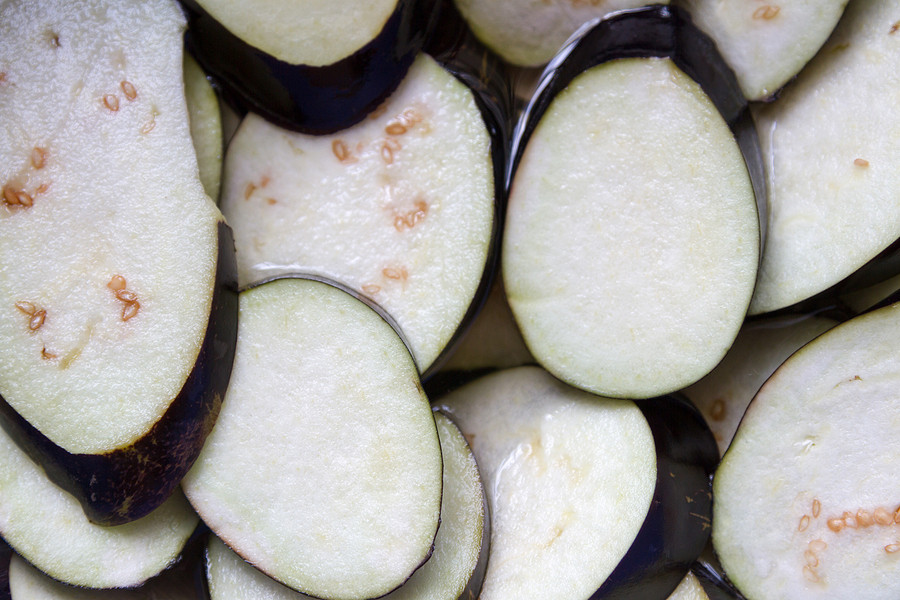
4. Soak the eggplant in milk
If you have less time, try soaking the prepped eggplant in milk for about half an hour. You’ll not only get a less-bitter eggplant, but an eggplant that’s creamier after cooking. (And if you discover that you like the way this method impacts the eggplant’s texture, consider letting the veggie soak longer next time; you can leave your eggplant soaking in milk up to all day or overnight.)
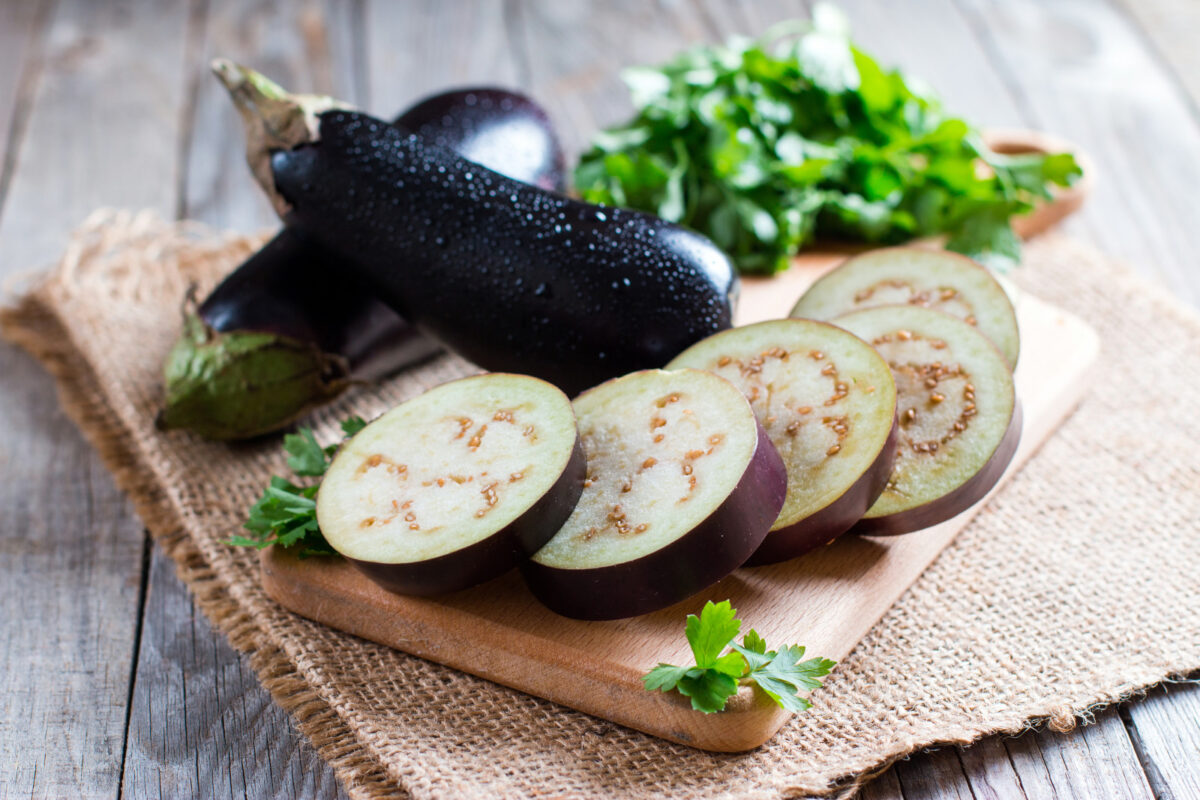
5. Remove the seeds
Lastly, if you have no extra time at all, and need to cook your eggplant, stat, try removing the seeds before cooking. The seeds are the most bitter part of the eggplant, so while this method won’t entirely remove bitter flavors, it will definitely help tone them down.






